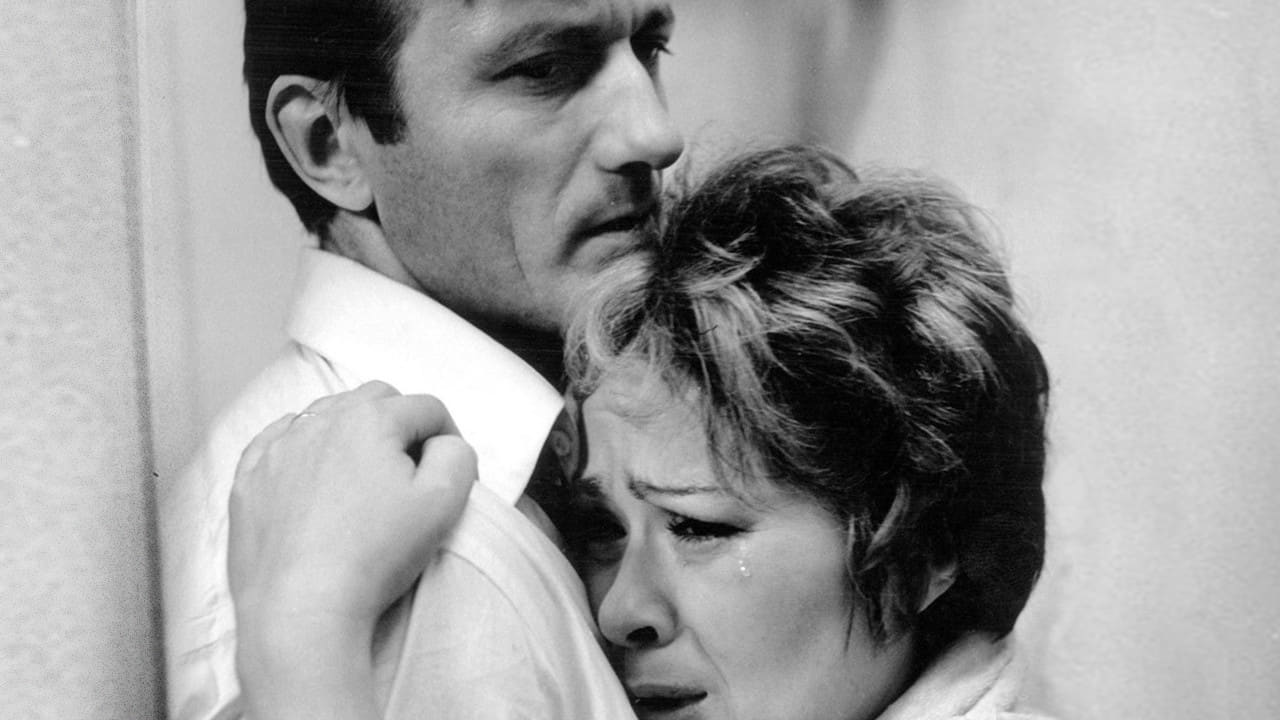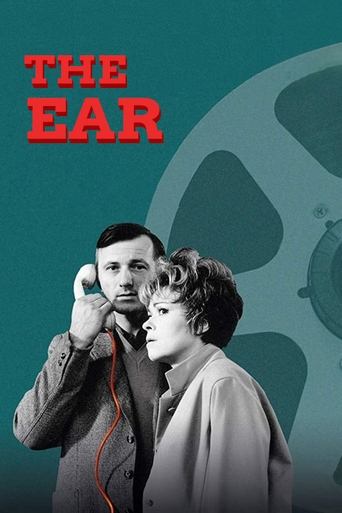Dorathen
Better Late Then Never
Abegail Noëlle
While it is a pity that the story wasn't told with more visual finesse, this is trivial compared to our real-world problems. It takes a good movie to put that into perspective.
Allissa
.Like the great film, it's made with a great deal of visible affection both in front of and behind the camera.
Jackson Booth-Millard
This film from the Czech Republic interested me for two reasons, firstly and mainly because it is one I found in the book 1001 Movies You Must See Before You Die, but also, secondly, because it was banned by the nation's ruling Communist party, it became available again in 1989, made me think it was controversial, I looked forward to finding out. Basically Ludvik (Radoslav Brzobohatý) is a senior official of Prague's ruling Communist regime, and his wife Anna (Jirina Bohdalová) is an alcoholic. They return home after spending the evening at a government function, a political party dinner, where Ludvik finds out several of his colleagues have been "relieved" of their responsibilities. Ludvik and Anna find that their home has been broken into, they repair the damage, but strange occurrences happen several times after, including the disappearance of the spare house keys and dead phone lines. This leads the couple to believe they are under surveillance by their own government, the house has been bugged, and "the ear" of the government is listening. As the night progresses, the couple are being extremely careful what they do and see, at the same their personal and marital flaws are exposed, until eventually they have had enough, and they make an effort to find and destroy the bugs, but there will be consequences whatever happens. Also starring Gustav Opocenský as Conrade, Miroslav Holub as General, Lubor Tokos as Minister, Borivoj Navrátil as Cejnar and Jirí Císler as Secret Agent Standa. It is a combination of politics and domestic drama, the most memorable scenes are obviously of the bitter married couple at loggerheads, it is a bit dated now, and I can't really understand it being "banned forever", maybe for the invasion of the home and privacy element, but it is interesting enough political thriller. Worth watching!
Movie George
This is an outstanding film, even by the standards of the Czech New Wave and a hundred times better that The Lives of Others which covers similar ground and won much acclaim and the Oscar for Foreign Film- which just confirms that the process of critical evaluation and film recognition is grossly unfair. The only reason Ucho is not on any Best Film lists is because is was made in the wrong place at the wrong time. In fact I am also baffled that it every got made at all- I see how it got banned, but how did anyone get the studio to make it? So what makes the film outstanding?...well everything really: Like all the Czech films of this period, it is great in every department.Very good photography cutting from the pitch black house (shot entirely by candlight- no mean feat technically) to the crossly overlit party. At the party, there is a lot of virtuosic hand held camera and wide angle point of view shots as the man slips in uncut sequence from intense gossip huddle to gossip huddle. These shots alone are remarkable. Acting- the core of the film is the disintegrating relationship between the man and his alcoholic wife – it's like Who's Afraid of Virginia Wolff but with the added edge that every accusation she makes of him is overheard and potentially going to destroy them. It's very well acted.Music and sound- typically of Czech films, a minimalist modern score with a very skillful post dub sound edit and mixScript- beautifully nuanced...maybe drags a little in the middle, but it takes on a huge challenge and it does it very well
chaos-rampant
Husband and wife stagger tired and tipsy through their house at night holding candelabras. Something's not quite right, a basement door open ajar, keys where they shouldn't be, electricity and phone are out of order. A little earlier the movie opens with the couple back at their house after a 'party' gala. They fight and bicker on the pavement out of the car, then inside the house, like we're behind a closed door hearing echoes of Who's Afraid of Virginia Woolf. Flashbacks to the party earlier that night in subjective POV shots take us through a roomful of people dressed in suits holding up cocktail glasses ready to toast prominent Party figures, faces peering intently into the camera, huddling together to hide conspiratorial whispers or perhaps simple idle gossip. When the husband goes to the bathroom to freshen up, an old woman shows up to offer him a towel; in doing so, she disappears in the background and stays there, as though placed there to observe.This is a great movie about paranoia, the "fear" of being watched and discussed, and it's a half good movie when it stops being about paranoia, because at some point we know the couple is being monitored by the Party and have had to live with bugs in their living room for years. In the famous finale of The Conversation, a maddened Gene Hackman tears through his apartment looking for bugs. His nightmare echoes through the years of cinema because it's a nightmare left incomplete, damnation through eternity. Here things become clear in the final act.This is ambiguous psychodrama for as long as it suits the movie, then it becomes the political indictment it planned to be. It's stunning to me that a movie like this was allowed to be made in the Eastern Bloc of the 1970's. Usually filmmakers working in Soviet Union satellite republics spoke of Soviet tyranny indirectly. They used the Nazis to tell us about living through the oppression of a totalitarian regime. Here comrade Stalin is mentioned by name. As such, this is a brave movie that attacks contemporary things of a contemporary society.The dimensions of this political thriller are most chilling for me in a particular scene: the husband asks the wife to remember earlier at the party if one particular guest was friendly to her and addressed her by her first name. He reasons that if he did so, if he recognized her in public in a friendly manner, that the husband is not under political scrutiny by his higher-ups, if that were the case everyone would keep their distance from even the wife. Social life in The Ear is not leisure time or exchange of ideas, it's an arena of suspicion and conspiracy, a chess game of ritualized behavior and expected moves.Back home, behind closed doors, The Ear never sleeps. Under its scrutiny, married life becomes the forum of vented anger and frustration. As the married couple stagger through their household in the dark holding candelabras as though exploring the catacomb of a Gothic horror movie, their exchanges become increasingly unpleasant and hostile. There's one very grueling scene in the bathroom where the wife berates her husband for the choices of a lifetime. Yet in the important moments of life and death, when a man is about to take his own life or when they're coming to get him, they're close together in defiance of everything.
podwilliams
Like so many other films made in Eastern Europe in the 60s and 70s, I've longed to see this gem again. Once upon a time, back in the 80s, the UK's Channel 4 used to show all kinds of weird and wonderful films into the early hours, introducing this teenager (now 36) to a new and exciting world of international cinema.This Czech classic (banned when Dubcek's regime was toppled in '69) concerns Ludvik, a top bureaucrat, and his wife, Anna, coming home one night from a reception to find their home has been bugged (during a period of political purging). The paranoia and sleepless night sets Lunvik and Aanna against each other, and the film finally shows what it took to 'get head' in a Stalinist regime.

